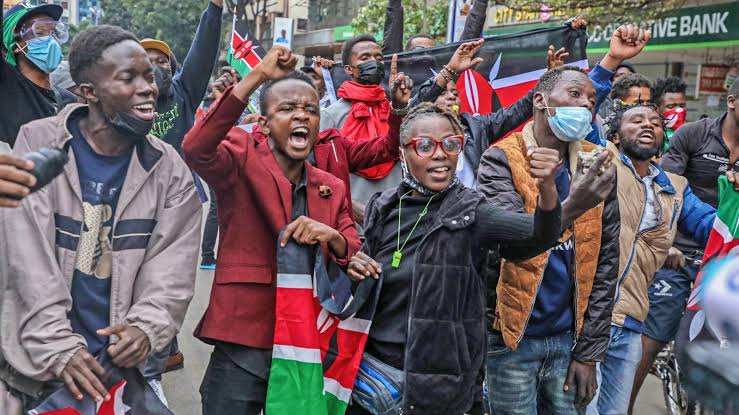By Musa Maridhawa
The sad and needless demise of teacher-cum-blogger Albert Ojwang has occasioned an outrage we need to interrogate a little more seriously. Kenya’s commercial human rights activists, comprising an ever-eager célèbre of thirsty media limelight wannabes has descended on the scene, transforming private agony into a public spectacle.
Ojwang’s unfortunate death now risks becoming mere fodder for stardom profiling and a carnival of media posturing with little regard for the family’s anguish at a moment when the best we can give them is a chance to mourn in peace and with dignity.
As things stand, somewhere along the path of righteous anger, a corrosive detour has been taken by a lot the audacious and prolific social commentator Francis Gaitho refers to as commercial activists.
Kenya’s career commercial activists are overly dramatic by nature. They recently printed placards bearing Ojwang’s image with indecent haste.
In the streets, microphones were thrust before Ojwang’s traumatised father even before the shock of the loss of a son settled. Social media timelines flooded with pantomimed outrage, often divorced from the family’s immediate visceral needs.
The narrative was wrested away and curated for camera clicks. To these snake oil merchants of Kenya’s activism, always peddling outrage as their primary commodity, we must now speak plainly and call them out. We must tell them to step back from the swirling vortex they have helped create around the Ojwang family.
Their relentless need to dominate the airwaves, orchestrate confrontational protests irrespective of context, and turn every moment of quiet remembrance into a noisy personal limelight-seeking rally, is not solidarity. It is exploitation.
It denies Albert Ojwang the dignity in death as it does his widow, and his father and mother. True respect lies not in plastering Albert Ojwang’s image on hastily assembled banners for yet another city centre melee.
It lies in allowing the space for tears not captured by camera lenses, for whispered prayers not drowned out by chants, for the sacred rituals of burial conducted with solemnity but not as a backdrop for political theatre.
The path to justice for Albert Ojwang is necessarily complex and arduous. It lies in the meticulous, often slow, work of investigative bodies. It lies in the courts, where evidence must be presented and tested. It lies in sustained, principled pressure on institutions, demanding speedy conclusions of the probe underway.
This vital work is undermined, not advanced, by the cacophony of self-serving opportunism of activists, many who have zero empathy for Ojwang’s family’s dilemma. When protests devolve into violent clashes, property destruction, or when they are cynically infiltrated, the focus shifts from Ojwang’s specific case and his family’s plea to the chaotic spectacle itself.
The legitimate demand for accountability gets lost in the smoke of tear gas and the noise of competing agendas. While genuine support for Ojwang’s family’s immediate needs and long-term welfare is essential, the potential for exploiting public sympathy under the guise of “justice” or “family support” is a real and present danger. If this is let to prevail, it risks diverting resources and trust away from where they are truly needed.
The wheels of institutional response, be they rusty, are turning. This moment demands not less activism, but action rooted in empathy and genuine respect for the human beings at the heart of the tragedy. Action that demands that we all think of the wishes of the Ojwang family first but not make fodder of the family’s tragedy a reason to profile our activist agenda for its own sake. Kenya’s conscience is rightly pricked by Albert Ojwang’s death.
But honouring him, and respecting his devastated family, requires more than hashtags and street battles. It demands solemn silence around given the grief his family is suffering just now. It demands dignity for the departed. It demands that the snake oil merchants and purveyors of enacted outrage step aside.
We must allow the Ojwangs to shed their tears in private and allow the poor young man to rest in peace. To the activists, including the commercial breed, pursue justice with unwavering resolve, but pursue it with reverence.
The limelight you crave is a cruel substitute for the quiet dignity a grieving family deserves.
Let them mourn. Kindly keep off!
Maridhawa is a Kilifi-based ethnographer





















Add Comment